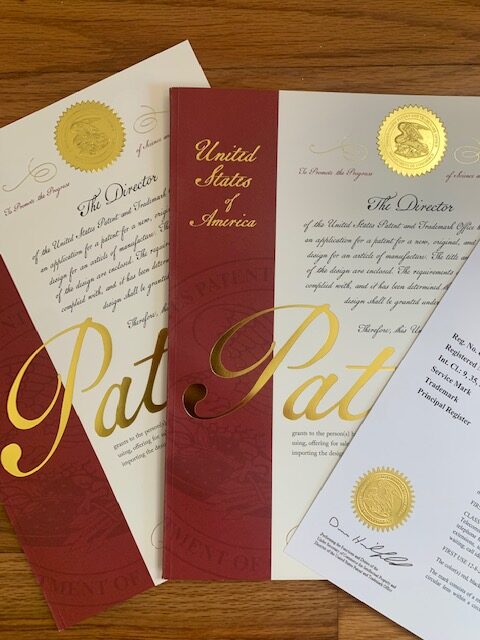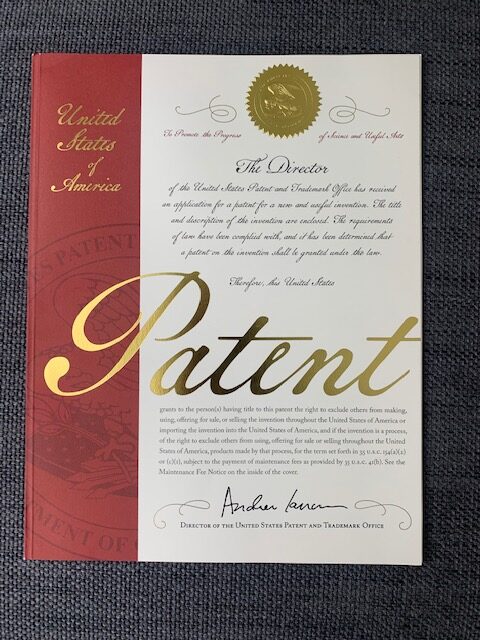Patent law is an expansive area of law that can take years to master. Leave it to an expert.
There are numerous and varied legal considerations to take into account when protecting your invention. You need a legal team that knows how to navigate the laws governing inventions and patents so you can not only secure your patent right, but profit from them. See a brief explanation of some of the patent topics we handle below.
A patent is a document that provides a legal monopoly over the manufacture and sale of a unique, physical invention which you, the creator, have exclusive access to over a period of time There are different types of patents and patent applications.
A design patent is a type of patent that protects any new, original and ornamental design for an article of manufacture. A design patent protects the visual, ornamental or aesthetic characteristics of an article of manufacture. To learn more about design patent patents CLICK HERE

A utility patent provides you legal protection of the functional features of a particular invention. A utility patent does not protect the aesthetic characteristics of an invention. Typically, utility patent applications may be more costly than a design patent application because the amount of time an attorney takes to draft a utility patent application and the utility patent application’s claims is much longer that a design patent application. To learn more about utility patent patents CLICK HERE
A patent search or “prior art search” is a search performed to find documents, patent application publications, or patent applications that could affect a person’s ability to acquire patent rights on a particular invention. In the patent world, the term “prior art” means disclosures or documents such as scientific publications, patents and patent applications that are known to the public before a patent application is filed. Patent searches are very important because almost every country in the world operates under a “first to file” system. In a first-to-file system, patent rights for a given invention lies with the first person to file a patent application for protection of that invention, regardless of the date of actual invention. Many times, clients will have a patent search completed and then have a patent attorney issue a “patentability opinion” based on the results of the patent search. The patentability opinion provides a legal analysis and opinion as to whether an invention is entitled to patent protection. A patentability opinion should also provide recommendations about how best to protect the invention. To learn more about prior art searches CLICK HERE.
A provisional application is a legal document that establishes a filing date for an invention. Many businesses and inventors use provisional patent applications as a first step in protecting their invention. An early filing date is important under the patent laws because every country in the world now operates under a first-to-file system. There is no such thing as a provisional design patent application. Generally speaking, a provisional patent application can only be filed to protect the functional features of an invention. Provisional applications have several advantages, including that provisional patent applications may be less costly than non-provisional patent applications. To learn more about prior art searches CLICK HERE.

A freedom to operate opinion helps determine if a product or process may infringe on a particular’s patent’s claims. Before bringing a new product or process to market, many businesses and inventors want to understand the potential risks that making, using or selling a new product or process may have associated with it. The probability of infringing on the patent rights of another is one such issue that many prudent businesses want to understand before investing significant resources and funds into developing a new product or process. To learn more about freedom to operate opinions CLICK HERE.
Patent prosecution is a term that describes the process of drafting, filing and negotiating with the United States Patent and Trademark Office (“USPTO”) in order to obtain a patent on an invention or design. Only a patent attorney registered to practice before the USPTO can prosecute a patent application on behalf on an individual or business. The patent attorneys at The Plus IP Firm are registered to practice before the USPTO and have prosecuted hundreds of patent applications on behalf of clients. To learn more about patent prosecution CLICK HERE.
If you want to more about the patenting process, such as whether or not you need a prototype to develop an invention, what a “poor man’s patent” is and does it protect an inventor, and when you can use “patent pending on marketing materials, then CLICK HERE to get answers to frequently asked questions (FAQs)about patents and the patenting process.









